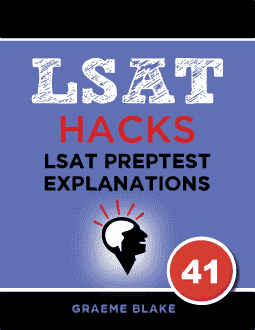QUESTION TEXT: If violations of any of a society’s explicit rules routinely go…
QUESTION TYPE: Flawed Reasoning
CONCLUSION: A society never ought to allow a violation of its explicit rules to go unpunished.
REASONING: If rules are routinely broken and not punished, chaos will result.
ANALYSIS: Watch out for subtle shifts of emphasis. The stimulus gives good evidence that we shouldn’t allow routine violations of rules, but the conclusion goes too far, saying we should never allow such violations.
___________
- Incorrect reversal. The stimulus says chaos will ensue if we don’t punish rule breakers; it is not saying there are no other ways chaos could ensue.
- This opens up the possibility that the laws are flawed. But the stimulus argues that the process of rule breaking itself is what leads to chaos, not the consequences that occur when the rules are broken.
- Tempting, but the stimulus is not referring to any rules in particular. It’s referring to all rules.
- CORRECT. Yes, it confuses routine lawbreaking with occasional lawbreaking.
- The same error as C. The stimulus is concerned with rule breaking itself, rather than the particular laws which are disobeyed (e.g., if you break a beer bottle, the main concern here is that you flouted the law, not that there is glass on the curb).
Recap: The question begins with “If violations of any of a society’s explicit rules routinely go”. It is a Flawed Reasoning question. Learn more about LSAT Flaw questions in our guide to LSAT Logical Reasoning question types.


Leave a Reply